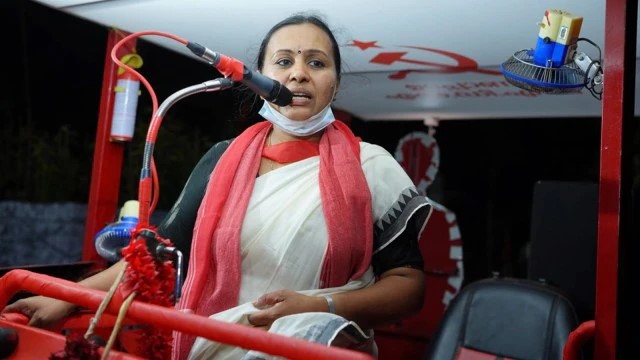
Kerala Govt: Higher Detection, Stricter Guidelines Driving Rise in Brain-Eating Amoeba Cases

 :
| Updated On: 18-Sep-2025 @ 11:36 am
:
| Updated On: 18-Sep-2025 @ 11:36 amSHARE
The Kerala government has attributed the recent rise in primary amoebic meningoencephalitis (PAM) cases to improved detection methods and stricter public health guidelines, clarifying that the apparent increase in cases does not necessarily reflect a sudden surge in infections. This statement comes in the wake of a tragic year for the state, which has recorded 19 deaths from the brain-eating amoeba disease so far, drawing widespread attention to this rare but deadly infection.
PAM, commonly known as a brain-eating amoeba infection, is caused by Naegleria fowleri, a free-living amoeba found in warm freshwater bodies such as lakes, rivers, and poorly maintained water systems. The infection is extremely rare but almost always fatal once symptoms appear. Early detection and rapid treatment are critical for survival, though diagnosis is often challenging due to its similarity with other forms of encephalitis in the early stages. In India, Kerala has periodically reported PAM cases, with heightened awareness emerging in recent years due to media coverage and public health campaigns.
In response to an adjournment motion in the Kerala Legislative Assembly, moved by the Congress-led United Democratic Front (UDF), Health Minister Veena George addressed the spike in reported cases. She explained that enhanced surveillance, better diagnostic practices, and stricter classification criteria under the state’s health guidelines are resulting in more cases being accurately identified as PAM rather than being broadly categorized as encephalitis. This reflects the state’s commitment to precise disease reporting, which helps improve monitoring, resource allocation, and treatment protocols.
Minister George emphasized that the apparent rise in PAM cases should not be interpreted as a public health crisis or as an indication that the disease is spreading more rapidly. Instead, it signifies that the state’s health infrastructure is now more capable of identifying infections that may previously have been misdiagnosed or overlooked. Improved laboratory diagnostics, more rigorous monitoring of water sources, and heightened awareness among healthcare professionals have all contributed to this trend. By differentiating PAM from other forms of encephalitis, the state can implement targeted interventions and ensure that patients receive appropriate medical attention at the earliest stage possible.
The government’s remark also highlights the importance of public awareness regarding the brain-eating amoeba. Citizens are encouraged to follow safety precautions while swimming or bathing in freshwater bodies, such as avoiding warm stagnant waters and using safe, treated water for domestic purposes. The Health Ministry continues to monitor and report cases, providing timely updates and guidelines to local hospitals and clinics.
Overall, the statement from Kerala’s government and Health Minister Veena George clarifies the context behind the spike in PAM cases. It underscores that enhanced detection, stricter reporting protocols, and improved diagnostic measures are key factors in the apparent rise, rather than a sudden surge in the prevalence of the disease. By ensuring accurate classification and raising awareness, Kerala aims to mitigate risks and improve outcomes for those affected by this rare but highly fatal infection.